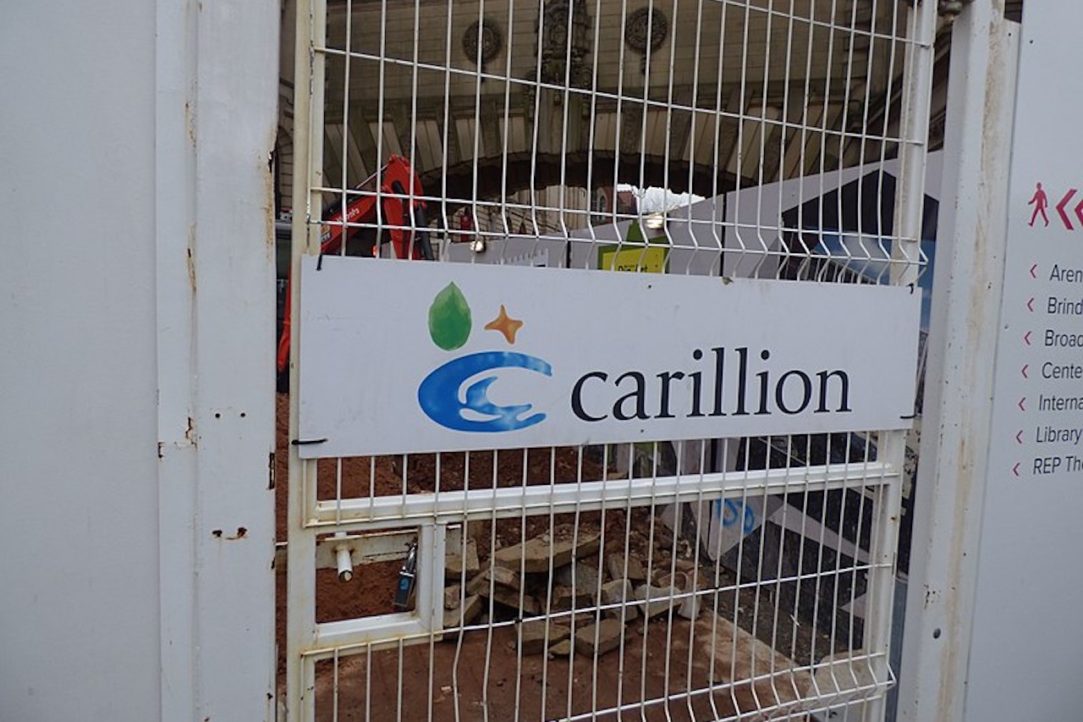
After the collapse in January of U.K. construction company, Carillion, one U.K . internal audit leader is calling on members of the internal audit profession to do some soul searching, reflect on the primary role of internal audit, and spend more time considering “big picture” issues. Others are criticizing the outsourced internal audit function at the company for missing signs of major problems or potentially misleading financial disclosures.
Members of Parliament in the United Kingdom and critics in the business community have at least partly blamed the internal audit function at Carillion, which had been outsourced to Big Four firm Deloitte, for failures that led to the bankruptcy of Britain’s second largest construction and outsourcing firm earlier this year. They have also criticized KPMG in its role as external auditor.
During testimony before Parliament this week, representatives from some of Carillion’s largest investors said they were misled by the company’s accounting statements and other financial disclosures and that they did not reflect the true financial picture of the company. Murdo Murchison, chairman of Scottish investment firm Kiltearn Parners, told the joint business and pensions select committee that since the company’s collapse in January, he’d seen “evidence of misstatements of profits over a prolonged period of time, evidence of aggressive accounting, and actually evidence of extremely poor operational management completely at odds with the way the business was presented.”
Stark Words for the Auditors
Members of Parliament had harsh words for representatives of Deloitte and KPMG during a February hearing on the company’s collapse. MP Rachel Reeves, who chairs the Business Committee, said Carillion’s annual reports were “worthless as a guide to the true financial health of the company.” Labour MP Peter Kyle said he wouldn’t trust KPMG to conduct an accurate audit “of the contents of my fridge.”
During the testimony, Michael Jones, a Deloitte internal audit partner, admitted he did not attend a meeting of Carillion’s audit committee where it agreed to conduct the £845 million ($1.2 billion) writedown that precipitated the company’s collapse, saying it was not uncommon to miss such meetings. MP Reeves responded: “It might not be unusual, but I find it quite surprising.”
Jones further angered legislators when he said it was not the job of auditors (presumably including outsourced internal auditors) to get involved in strategic decision-making. “We’re not management, we don’t take strategic decisions. In fact the (Chartered) Institute of Internal Auditors prohibits us from doing that and being part of management.” The comments may raise some eyebrows about the viewpoints and allegiances of mercenary outsourced internal auditors, as opposed to those who are on the company payroll directly.
Should IA Be Involved in Strategy?
Such a position on the role of internal audit is a controversial and much discussed one. The profession has struggled mightily to strike a balance between taking a strategic role in the business and maintaining independence to provide objective assurance on business practices.
Indeed, Ian Peters, chairman of the Chartered Institute of Internal Auditors weighed in on the discussion in an editorial letter in the Financial Times, urging internal auditors to focus on the bigger picture and consider the big risks that threaten organizations. “According to the Chartered Institute of Internal Auditors, the primary role of internal audit in financial services should be ‘to help the board and executive management to protect the assets, reputation, and sustainability of the organization.’ But too often internal audit has been preoccupied with detailed low-level risk and has failed to focus on the bigger picture,” he wrote. “It seems clear that the time has now come to apply such a code to the rest of the corporate sector to ensure that internal audit focuses on the risks that matter most.”
Finding the right ways for internal audit to take a more active role in the leadership of the business has been priority of the Institute of Internal Auditors in the United States. In 2016 the organization made changes to its professional standards to pave the way for internal auditors to conduct more advisory and consultative work. It has also been a major advocate for internal auditors to play leadership roles in the company. In a February blog post IIA Chairman Richard Chambers called on internal auditors to “speak truth to power.”
Perhaps if internal and external auditors at Carillion more fully embraced that mindset, the company would have addressed mounting problems earlier, when there was still time to fix them.
Regulators in Britain began an investigation into what happened at Carillion on January 18, three days after the group was placed in compulsory liquidation with an estimated £900 million ( $1.25 billion) funding shortfall in its pension scheme. That investigation is ongoing. ![]()


The Carillion case is very troubling. I do urge internal auditors to speak truth to power. But first you have to be in the room, and second you have to be more than a bean counter.